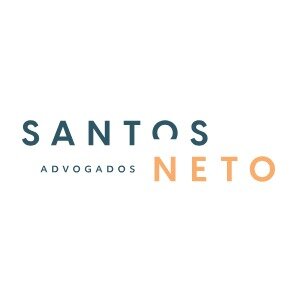Best Franchising Lawyers in São Paulo
Share your needs with us, get contacted by law firms.
Free. Takes 2 min.
List of the best lawyers in São Paulo, Brazil
About Franchising Law in São Paulo, Brazil
Franchising in São Paulo, Brazil, is a thriving business model that has attracted both domestic and international brands. The Brazilian Franchise Law (Law No. 13,966/2019) regulates the franchising industry and is designed to establish transparent and fair practices, ensuring both franchisors and franchisees have clear guidelines to follow. São Paulo, being one of Brazil's major economic hubs, holds a significant portion of the franchising activities in the country. The law outlines the obligations of both parties, requiring comprehensive disclosure before signing agreements, which helps mitigate risks and fosters a healthy business environment.
Why You May Need a Lawyer
There are numerous situations where a person engaged in franchising might require legal assistance:
- Negotiation and Drafting of Franchise Agreements: Lawyers can help navigate the complexities and ensure the contract aligns with your business objectives.
- Franchise Disclosure Documents: Ensuring accurate and complete disclosure is legally compliant and comprehensive can prevent future disputes.
- Dispute Resolution: In cases of conflicts between franchisors and franchisees, a lawyer can offer mediation, arbitration, or litigation support.
- Compliance with Local Laws: Understanding and adhering to local regulations is critical, and legal experts can guide you through this process.
- International Franchising: For those looking to expand internationally, legal advice is crucial to address cross-border legal issues.
Local Laws Overview
The Brazilian Franchise Law provides a comprehensive legal framework governing franchises. Key aspects include:
- Franchise Disclosure Document (FDD): Requires franchisors to provide potential franchisees with an FDD at least 10 days before signing an agreement. The document must include comprehensive details about the franchise system, franchisor's financial statements, and any pending litigation.
- Registration: While there is no requirement to register the franchise with authorities, accurate and honest disclosure is mandatory.
- Applicability: The law is applicable to both domestic and international franchisors operating within Brazil.
- Termination and Renewal: Specific rules guide the termination, non-renewal, or transfer of agreements, protecting the rights of both parties.
Frequently Asked Questions
What is the primary law governing franchises in Brazil?
The main regulation is the Brazilian Franchise Law (Law No. 13,966/2019), which mandates full disclosure and defines parties' obligations.
Do international franchisors have any special requirements in Brazil?
International franchisors must comply with the same disclosure requirements, ensuring the Franchise Disclosure Document is translated into Portuguese and accurately reflects their international operations.
Is it mandatory to register a franchise agreement in São Paulo?
No, franchises do not need to be registered with Brazilian authorities. However, providing a compliant FDD is compulsory.
Can franchisees negotiate the terms of a franchise agreement?
While the initial terms are typically set by the franchisor, potential franchisees can negotiate terms. Legal counsel is advisable to identify any areas for negotiation.
How are disputes typically resolved in franchising?
Dispute resolution methods include negotiation, mediation, arbitration, and litigation, with arbitration being a common method in franchise agreements.
What should be included in a Franchise Disclosure Document?
An FDD must include details about the franchise system, use of trademarks, initial investment, obligations of both parties, and audited financial statements, among others.
How long does it take to establish a franchise in São Paulo?
The timeline varies depending on negotiations, document preparation, and legal compliance but generally ranges from a few months to a year.
What are the costs involved in starting a franchise in São Paulo?
Costs include franchise fees, initial investment, setup costs, and legal expenses, which vary significantly across industries and brands.
Can a franchisee sell their franchised business?
Selling a franchise requires compliance with terms of the franchise agreement that often necessitate franchisor approval.
What protections do franchisees have against unfair termination?
The Brazilian Franchise Law provides protections to prevent unjust terminations, requiring legitimate reasons and prescribed processes to terminate a franchise agreement.
Additional Resources
For further assistance, consider these resources:
- Associação Brasileira de Franchising (ABF): A leading franchise association offering educational resources and industry news.
- Brazil's Ministry of Economy: Provides guidelines on economic activities and compliance.
- Local Chamber of Commerce: Offers resources for starting and managing businesses in São Paulo.
Next Steps
If you require legal assistance in franchising, consider the following steps:
- Research and list potential lawyers or law firms specializing in franchising law in São Paulo.
- Consult with professionals who are experienced in Brazilian franchise law and understand your industry.
- Prepare necessary documents and background information about your business and franchise goals.
- Schedule a consultation to discuss your needs and the services a lawyer can provide.
- Ensure clarity on the legal fees and terms of engagement with your chosen legal advisor.
Lawzana helps you find the best lawyers and law firms in São Paulo through a curated and pre-screened list of qualified legal professionals. Our platform offers rankings and detailed profiles of attorneys and law firms, allowing you to compare based on practice areas, including Franchising, experience, and client feedback.
Each profile includes a description of the firm's areas of practice, client reviews, team members and partners, year of establishment, spoken languages, office locations, contact information, social media presence, and any published articles or resources. Most firms on our platform speak English and are experienced in both local and international legal matters.
Get a quote from top-rated law firms in São Paulo, Brazil — quickly, securely, and without unnecessary hassle.
Disclaimer:
The information provided on this page is for general informational purposes only and does not constitute legal advice. While we strive to ensure the accuracy and relevance of the content, legal information may change over time, and interpretations of the law can vary. You should always consult with a qualified legal professional for advice specific to your situation.
We disclaim all liability for actions taken or not taken based on the content of this page. If you believe any information is incorrect or outdated, please contact us, and we will review and update it where appropriate.

















